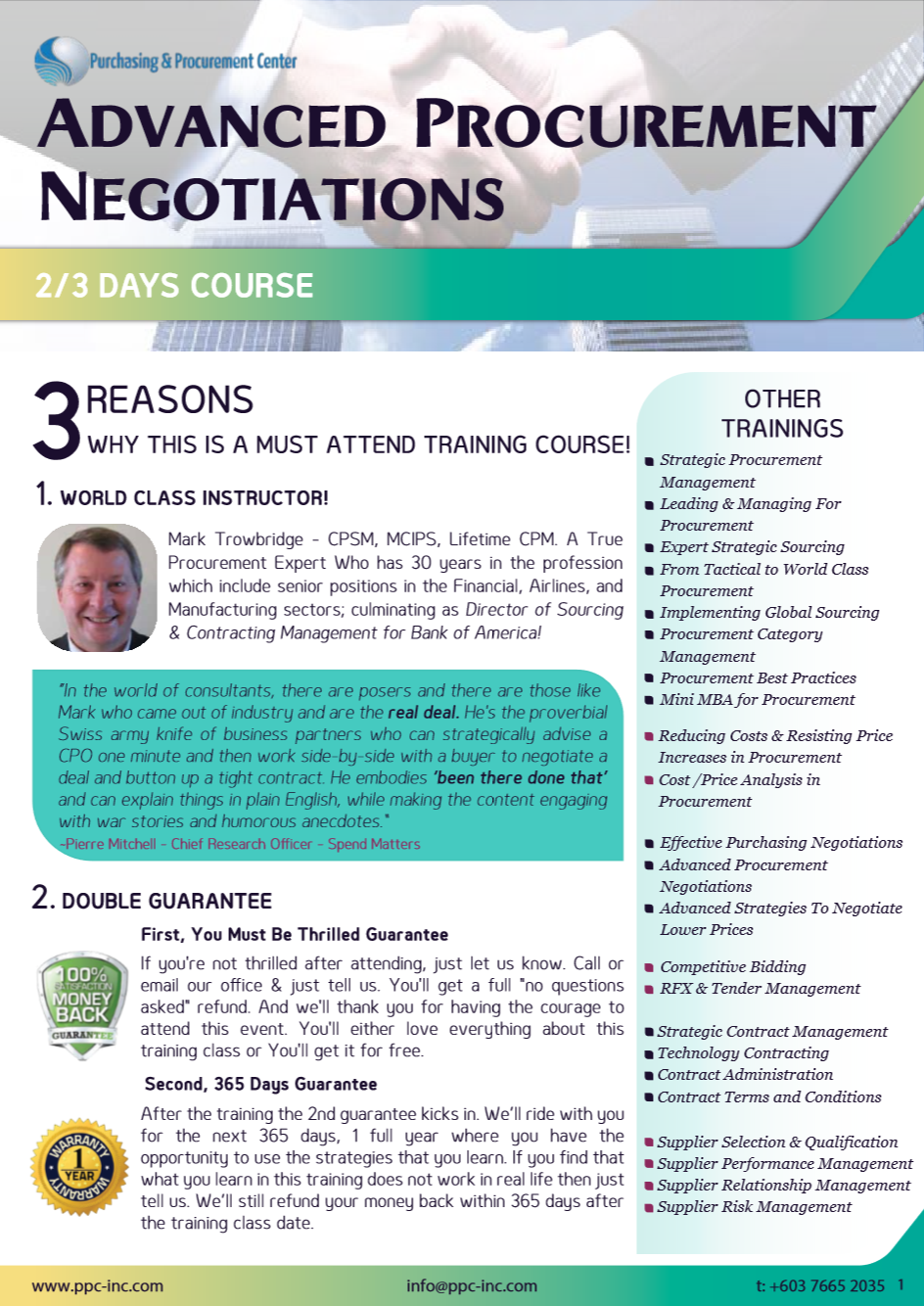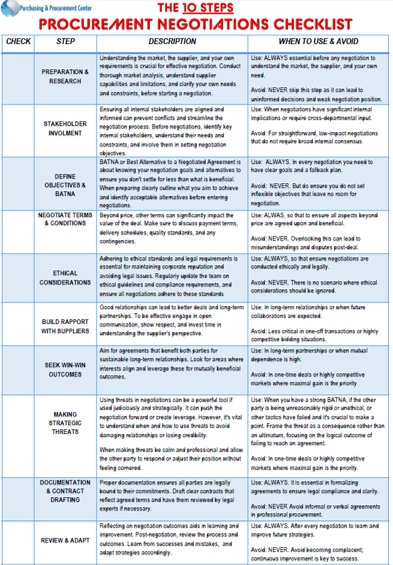4 Core Supplier Negotiation Strategies!

When
it comes to supplier negotiation, there are several factors to consider. One
important aspect is the impact it has on your organization's bottom line.
By negotiating effectively, you can secure competitive prices that align with your budgetary constraints. This can lead to significant cost savings, allowing you to allocate resources to other areas of your business.
Furthermore, supplier negotiation is essential for ensuring the quality of the products or services you receive.
Through transparency and trust you can establish a shared understanding, enabling your suppliers to deliver products or services that meet your standards.
Let’s dive in and look at the 4 supplier negotiation strategies below.
Strategy 1: Building Strong Supplier Relationships
A strong relationship with your supplier is crucial for successful negotiation outcomes and ongoing collaboration.
The Role of Trust in Supplier Negotiations
When it comes to negotiating with suppliers, trust plays a vital
role in achieving favorable outcomes. Trust forms the foundation of any
successful negotiation. Building trust requires open communication,
reliability, and consistency. It is essential to establish a relationship based
on mutual respect and understanding.
By nurturing a trustworthy relationship, you can foster a collaborative atmosphere where both parties feel comfortable sharing information and working towards mutual benefits. Open and honest communication is key to building trust. It is important to be transparent about your needs, expectations, and limitations.
- Reliability & Consistency Builds Trust
Reliability is another crucial aspect of building trust. Consistently meeting deadlines, honoring commitments, and delivering on promises will help establish your credibility as a reliable partner. This reliability will strengthen the trust between you and your supplier, making negotiations smoother and more successful.
Trust also plays a crucial role in managing conflicts that may arise during negotiations. In a trusting relationship, conflicts can be addressed openly and resolved in a constructive manner. This leads to stronger and more sustainable agreements.
Long-Term Benefits of Strong Supplier Relationships
Investing in strong supplier relationships brings numerous
long-term advantages. It can lead to preferential treatment, enhanced
responsiveness, and greater flexibility during challenging times.
- Suppliers Will Prioritize your Needs
When you have a strong relationship with your supplier, they are more likely to prioritize your needs and provide you with preferential treatment. This can include faster response times, priority access to limited stock, and personalized service tailored to your specific requirements.
In times of crisis or unexpected challenges, a strong relationship with your supplier can make a significant difference. Suppliers who value the relationship will be more willing to work with you to find solutions, offer flexible terms, and support your business during difficult times.
- Better Pricing
Furthermore, strong relationships often result in better pricing and access to exclusive product offerings. Suppliers are more likely to provide competitive pricing and discounts to their trusted partners. They may also offer access to new and innovative products before they are available to the general market, giving your business a competitive edge.
Building and maintaining strong supplier relationships requires time, effort, and continuous nurturing. However, the long-term benefits far outweigh the initial investment. By investing in strong relationships, you can create a solid foundation for successful negotiations and ongoing collaboration.
Strategy 2: Win-Win Negotiation
Achieving a win-win outcome should be the objective of every negotiation - one where both parties feel satisfied with the agreement.
- Understanding Mutual Benefits
Successful negotiations require an understanding of the mutual benefits that can be achieved. Identify areas where both parties can gain value, such as cost savings, process improvements, or access to new markets.
- Achieving a Balanced Agreement
By emphasizing these mutual benefits, you can build a case for a win-win solution that satisfies both parties' interests.
Avoid one-sided agreements that may result in future tensions. Strive to reach a balanced agreement that considers the needs of both your business and the supplier.
This ensures a sustainable and long-lasting partnership that provides mutual value and opportunities for growth.
Strategy 3: Leveraging Supplier Competition
Competition among suppliers can give your organization an
advantage in negotiations. By creating an environment where suppliers know they
are competing for your business, you can negotiate better terms and prices.
Encourage suppliers to present their best offers, and leverage this competition to drive favorable outcomes.
To leverage supplier competition effectively, establish clear evaluation criteria and communicate them to all potential suppliers. This will create a level playing field and enable you to compare proposals objectively.
By fostering healthy competition, you can maximize value and ensure that you secure the most advantageous terms.
Strategy 4: Focusing on Total Cost of Ownership
Procurement negotiations should not solely focus on initial
costs. Instead, take a holistic approach by considering the total cost of
ownership.
This includes factors such as maintenance, replacement, and operational expenses. By evaluating the long-term consequences of your negotiation decisions, you can make informed choices that optimize value.
When assessing the total cost of ownership, consider the product's lifecycle and associated expenses. Evaluate factors such as reliability, durability, and ongoing support.
By taking a comprehensive view, you can identify cost-saving opportunities and select suppliers that offer the best long-term value proposition.
But using the above 4 supplier negotiation strategies you can obtain the best deals and building strong partnerships.
Remember, the core supplier negotiation strategy can be better summarized with a Mindset where both parties walk away with a deal they own and are committed to deliver with full value.
Not always achievable but a standard that you should always aim for.
Find out more information about Procurement and Supplier Negotiation Strategies here.





